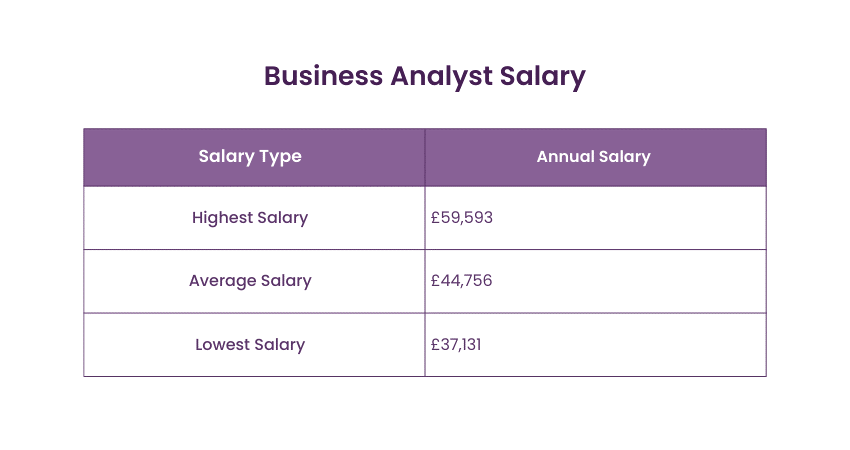We may not have the course you’re looking for. If you enquire or give us a call on +1 7204454674 and speak to our training experts, we may still be able to help with your training requirements.
Training Outcomes Within Your Budget!
We ensure quality, budget-alignment, and timely delivery by our expert instructors.

Imagine standing at the intersection of business strategy and technological innovation, where someone transforms complex challenges into actionable solutions. Understanding What is a Business Analyst (BA) opens doors to one of today's most dynamic and influential roles in modern organisations. These professionals don't just bridge gaps between departments - they architect the very solutions that drive business success.
In this blog, we'll delve deep into What is a Business Analyst, exploring how these professionals translate business dreams into digital reality. Discover how they turn ideas into impact and shape the future of organisations through strategic innovation. Ready to explore this dynamic career path? Let's begin!
Table of Contents
1) What is a Business Analyst
2) What Does a Business Analyst Do?
3) Skills and Qualifications of a Business Analyst
4) How to Become a Business Analyst?
5) Why Consider a Career in Business Analysis?
6) What is the Difference Between a Business Analyst and a Data Analyst?
7) What Tools Does Business Analysts Use?
8) Conclusion
What is a Business Analyst
A Business Analyst connects business requirements and IT solutions to address business objectives and make positive changes. They coordinate with top management, Project Managers, and clients to develop, understand and establish the goals, milestones, and deliverables of a given project.
Application areas involve analysis of data such as flow data; A BA primarily employs tools like process mapping to determine the points of improvement or lack of it. They mediate between the stakeholders and provide input into solution development.
What Does a Business Analyst Do?
The Business Analyst is responsible for various activities that help achieve the success of a project and the overall goals of the business. Let's explore the core responsibilities of a Business Analyst:
a) Requirements Gathering: BAs collect and record information about business requirements to develop projects that would help in achieving business objectives.
b) Stakeholder Management: BAs build and maintain stakeholder relationships, facilitating information exchange and managing expectations throughout the project lifecycle.
c) Process Improvement: Business Analysts identify enhancement opportunities in existing processes and use modelling tools to redesign business operations.
d) Data Analysis: Business Analysts leverage data analytics tools to uncover patterns and insights that drive informed business decisions.
e) Solution Design & Implementation: Business Analysts collaborate with technical teams to transform business requirements into functional solutions that deliver business value.
f) Documentation & Communication: Business Analysts create comprehensive documentation to track project goals, specifications, and progress for all stakeholders.
g) UAT Support: Business Analysts oversee user acceptance testing, align test strategies, and resolve conflicts to ensure solutions meet business needs.
h) Continuous Improvement: BAs also learn industry practices and enhance ways of practising Business Analysis in an organisation.
Unlock the full potential of your career! Discover our comprehensive Business Analyst job description and see if this role aligns with your career goals. Learn more today!
Skills and Qualifications of a Business Analyst
Being a successful Business Analyst requires a unique combination of technical expertise, analytical thinking, and effective communication skills. The following are some essential skills and qualifications that contribute to the success of a Business Analyst:
Skills of a Business Analyst
The following are the essential skills of a Business Analyst:

a) Analytical Skills: Business Analyst need to look at large amounts of business data, understand relationships, and come up with decisions based on that data.
b) Communication & Interpersonal Skills: There is a need to communicate effectively while dealing with the stakeholders. To build relationships and meet conflict, BAs are required to listen, encourage others to speak, and explain information searched.
c) Problem-solving & Critical Thinking: By way of critical evaluation, BAs analyse issues and define key problem areas before searching for the most optimum solutions satisfactory to business goals.
d) Business & Domain Knowledge: Knowledge of business and trends in the market allows a BAs to find proper solutions to the problems they discover.
e) Technical Skills: It would not be mandatory to be an expert in technology, but BAs should have basic knowledge about technology and its related software, development methodology and tools in order to be in control during the project discussions with technical teams.
Qualifications of a Business Analyst
While a specific degree is not required to become a Business Analyst, having a background in business, information technology, or a related field can be beneficial. Many Business Analysts hold bachelor's degrees in business administration, computer science, or a related discipline. Additionally, obtaining professional certifications such as the International Institute of Business Analysis (IIBA) Certified Business Analysis Professional (CBAP) or the Project Management Institute (PMI) Professional in Business Analysis (PMI-PBA) demonstrates expertise and dedication to the field.
Continued professional development is crucial for Business Analysts. They should stay updated with industry trends, attend relevant training programs, and participate in communities of practice to enhance their skills and knowledge.
Master the art of analysis, and drive impactful change with our specialised CBA-PRO Training - join today!
How to Become a Business Analyst?
Becoming a Business Analyst (BA) typically involves a combination of education, skills development, and gaining relevant work experience. Here are some of the pointers to keep a note of:
a) Education: Preliminary education should be a bachelor’s degree in business, IT or other related fields. One can gain additional skills and knowledge in Business Analysis to make specialisation in one of the fields.
b) Developing Skills: Socio, communication and technical skills are particularly relevant, including problem solving abilities. Familiarity with working in tables like Excel, working with SQL, and comprehending Software Development Processes will be advantageous.
c) Gain Experience: There is an opportunity to start with basic positions in projects, such as a project coordinator or a Data Analyst (DA), to get an understanding of what business and a BA is.
d) Certifications: IIBA® Certified Business Analysis Professional (CBAP®) or PRINCE2 certifications make you more accredited and give you better chance in Business Analysis field.
e) Continuous Learning: Build your knowledge and increase the chances to get a job or a promotion by participating in professional organisations and attending events with other professionals.
Why Consider a Career in Business Analysis?
Business Analysis is an essential profession in organisations, and it acts as the bridge between business strategies and IT solutions. It includes Business requirements, change scope and effect, requirements documentation and management, and stakeholder communication. A career in Business Analysis is highly rewarding for several reasons:
a) High Demand: Business analysts are sought after for their expertise in enhancing business efficiency through insightful data analysis.
b) Diverse Challenges: The role offers diverse challenges, ensuring a dynamic and engaging work environment.
c) Competitive Salaries: Business analysts are well-compensated, with salaries reflecting the significant value they add to organisations.
d) Meaningful Impact: They play a key role in the success of projects and strategic business initiatives.
Business Analyst Salary
Here is the salary for a Business Analyst in the UK:

Source: Glassdoor
Job Outlook for Business Analysts
The job outlook for Business Analysts in the UK is exceptionally positive:
a) Growth: The field is anticipated to expand, with a projected increase in demand for Business Analysts.
b) Opportunities: As organisations increasingly depend on data-driven decision-making, the need for proficient Business Analysts is on the rise.
What is the Difference Between a Business Analyst and a Data Analyst?
A Business Analyst is concerned with business requirements, system requirements and solutions, on the other hand Data Analyst is involved in analysis of data and providing insights from the data. BAs are the interface between business and IT while DAs emphasise patterns and trends in business data for the decisions.
What Tools Does Business Analysts Use?
Business Analysts use a range of tools for Data Analysis and Project Management. Common tools include Microsoft Excel for data manipulation, Jira/Confluence for project tracking, Tableau/Power BI for Data Visualisation, Lucidchart/Visio for process mapping, and SQL for database queries. These tools streamline tasks and enhance collaboration.
Conclusion
The role of a Business Analyst encompasses a wide range of responsibilities, from gathering requirements to facilitating Project Management. BAs possess a unique skill set that combines technical expertise, business acumen, and strong communication skills. We hope that after reading this blog you have got an idea of What is a Business Analyst!
Unlock your potential in the field of business analysis, acquire essential skills, and propel your career forward with our comprehensive Business Analyst Course – join now.
Frequently Asked Questions

Business Analyst is not limited to a business environment, however more often it deals with IT teams. BA focus on both business and solution requirements, but they may need technical knowledge to align business needs with IT solutions.

The role of a Business Analyst adapts to the unique needs of various industries. In finance, Analysts focus on risk management and compliance, while in technology, they emphasise system integration and software requirements. Healthcare analysts delve into process optimisation for better patient care.

The Knowledge Academy takes global learning to new heights, offering over 30,000 online courses across 490+ locations in 220 countries. This expansive reach ensures accessibility and convenience for learners worldwide.
Alongside our diverse Online Course Catalogue, encompassing 17 major categories, we go the extra mile by providing a plethora of free educational Online Resources like News updates, Blogs, videos, webinars, and interview questions. Tailoring learning experiences further, professionals can maximise value with customisable Course Bundles of TKA.

The Knowledge Academy’s Knowledge Pass, a prepaid voucher, adds another layer of flexibility, allowing course bookings over a 12-month period. Join us on a journey where education knows no bounds.

The Knowledge Academy offers various Business Analyst Courses, including Business Process Mapping Training, Statistics Course, Business Analyst Fundamentals Training and more. These courses cater to different skill levels, providing comprehensive insights into various Types of Regression Analysis.
Our Business Analysis Blogs cover a range of topics related to Business Analysis, offering valuable resources, best practices, and industry insights. Whether you are a beginner or looking to advance your Business Analysis skills, The Knowledge Academy's diverse courses and informative blogs have you covered.
Upcoming Business Analysis Resources Batches & Dates
Date
 Certified Business Analyst Professional (CBA-PRO)
Certified Business Analyst Professional (CBA-PRO)
Thu 23rd Jan 2025
Thu 27th Mar 2025
Thu 15th May 2025
Thu 17th Jul 2025
Thu 18th Sep 2025
Thu 13th Nov 2025







 Top Rated Course
Top Rated Course



 If you wish to make any changes to your course, please
If you wish to make any changes to your course, please


